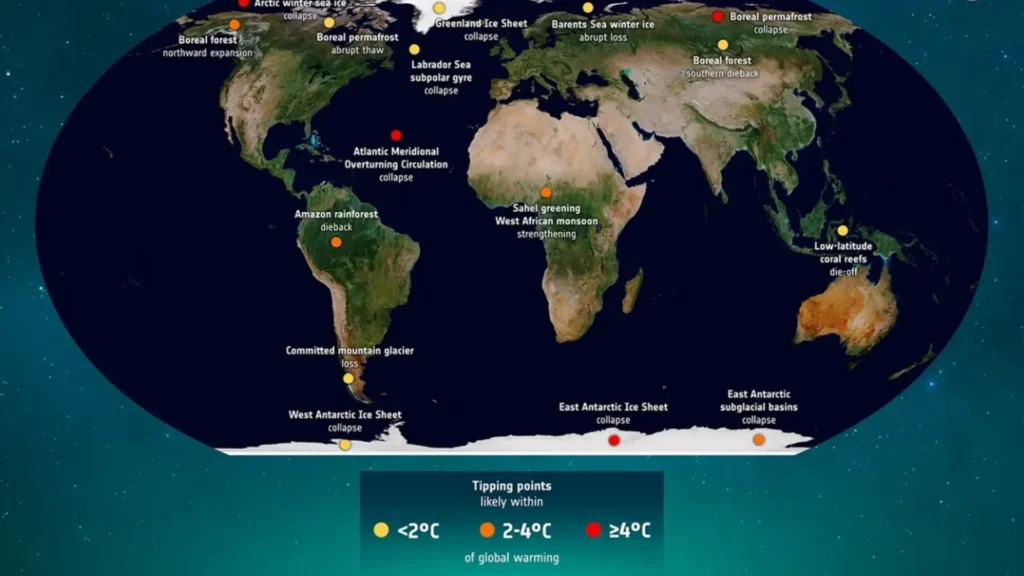The continuously rising temperatures and increasing sea levels are the utmost concern of the 21st century. The temperature on planet Earth is getting warmer day by day. The industrial revolution has played the major causes behind it by increasing emissions of greenhouse gases globally. Researchers around the world are deeply concerned about the climate tipping points as they may cause catastrophic changes in the earth’s climate system.
According to the Intergovernmental Panel on Climate Change (IPCC), Tipping Points of Climate Change are the critical thresholds in the ecosystem which when overstepped cause notable changes where the climate system may not return to its prior state. The Global Tipping Points report highlighted 5 crucial tipping points that have crossed the risk margin. By 2030 three more are expected to cross if the Earth gets warmer than 1.5 C. Tipping points have the potential to trigger harmful domino effects, impacting the entire biosphere and manifestation of staple crops, financial loss, and political fragility.
Some of the crucial tipping points that are at risk are primarily in Greenland and the West Antarctic, where the big ice sheets collapsed, leading to a notable increase in the sea level affecting the mass population residing in the low-lying areas and coastal areas. It will force them to be displaced to a safer place, further causing economic and livelihood losses.
As the Earth is getting warmer, coral reefs present in the warm waters are dying due to bleaching phenomena in the water’s higher temperature causing loss of coastal security, ecosystem, and fisheries. Increased thawing of Permafrost causes a great loss to the mass and will be unable to support vegetation and soil above it posing a serious threat to the infrastructure sector worldwide.
The crumbling of the North Atlantic Oceanic Current has the power to impact climate patterns globally. As the water on the Earth gets warmer than 1.5 C the coastal biosphere like Seagrass Meadows and Mangroves will collapse. Thus, to sustain humanity on Earth, the world has to unite and come up with fruitful climate-saving policies in the future to challenge these catastrophic climate changes.

